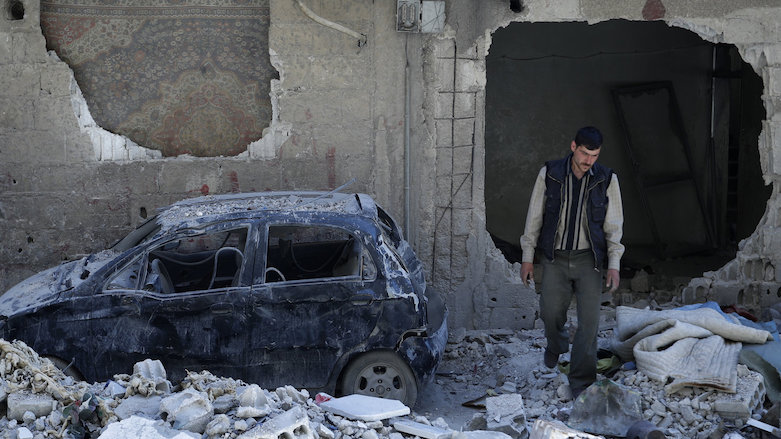Assad regime responsible for 98 percent of chemical attacks in Syria, new study finds

ERBIL (Kurdistan 24) – The Assad regime is responsible for 98 percent of chemical attacks in Syria’s years-long civil war, a study released on Sunday said.
The report, titled “Nowhere to Hide: The Logic of Chemical Weapons Use in Syria,” asserts that at least 336 instances of chemical attacks occurred in Syria since the outbreak of the civil war.
Moreover, the author’s, Tobias Schneider and Theresa Lütkefend, attributed 98 percent of the attacks on Syrian President Bashar al-Assad’s regime while they said the so-called Islamic State was responsible for the other two percent.

The Syrian regime has repeatedly used chemical weapons, including sarin gas, in the country’s ongoing civil war, as the Organization for the Prohibition of Chemical Weapons (OPCW) determined in January 2018.
“Indeed, the Syrian regime’s persistent and widespread use of chemical weapons is best understood as part of its overall war strategy of collective punishment of populations in opposition-held areas,” the author’s noted.
The study provided a timeline of the instances where chemical weapons were used in Syria, beginning in 2011 when the civil war broke out.
In August 2012, former US president Barack Obama declared a “red line” on the use of chemical weapons in Syria. Four months later, the first use of chemical weapons was recorded in Khalidiya, Homs.
A year later, in 2013, Eastern Ghouta and Moadamiya, outside the Syrian capital of Damascus, were attacked with sarin.
In 2017, the United States struck a Syrian air base, following the regime’s use of sarin gas in Khan Sheikhoun, despite officially agreeing to the Chemical Weapons Convention (CWC) in October 2013.
In April 2018, the US, this time along with France, and Britain, launched a military strike on Syria in response to its apparent use of sarin gas and chlorine in Eastern Ghouta, a rebel-held suburb of Damascus.
The study encouraged the US and “the wider international community” to “directly target the military formations” in Syria where chemical attacks are launched, noting it would “effectively disrupt the Syrian chemical weapons complex and deter their future use in Syria and other conflicts.”
Schneider and Lütkefend provided an extensive analysis on Assad’s use of chemical weapons in the civil war and offered recommendations for ways to combat and end its use.
The US and its allies “should maintain their current, publicly stated position that any use of chemical weapons by the Assad regime, including chlorine, will trigger an immediate military response,” they concluded.
